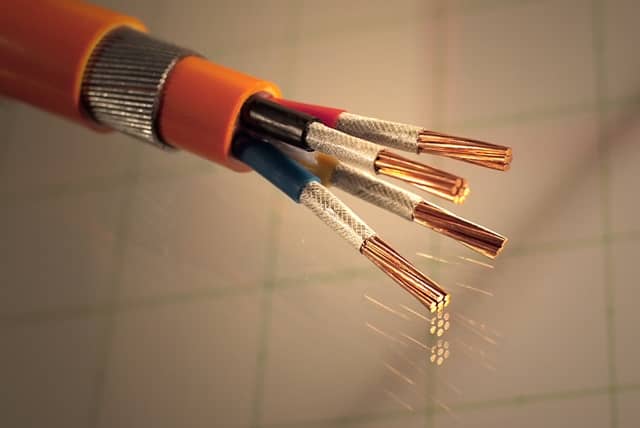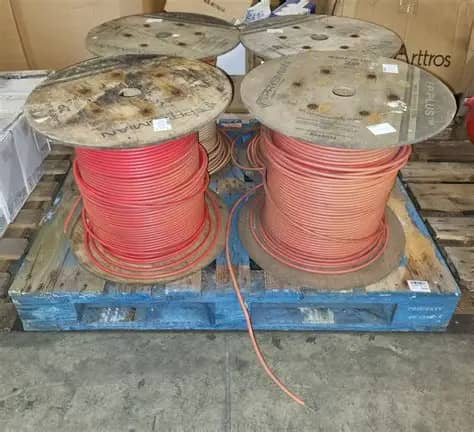Suke Fireproof Electrical Wire Factory Company | Safe Wiring Solutions for Home & Office
 Jul 25,2025
Jul 25,2025

 Suke
Suke
Electrical safety is a paramount concern for both homeowners and business operators. With the increasing complexity of electrical systems in modern buildings, the risk of electrical fires has become a significant threat. Fireproof electrical wires are designed to mitigate this risk by providing an extra layer of protection against fire hazards. These specialized wires are engineered to resist ignition, prevent the spread of flames, and maintain functionality even under extreme conditions. This article delves into the importance of fireproof electrical wires, their benefits, and how they ensure ultimate safety for your home and office installations.
What Are Fireproof Electrical Wires?
Fireproof electrical wires are specially designed cables that can withstand high temperatures and resist combustion. Unlike standard wires, which can easily catch fire and propagate flames, fireproof wires are constructed with materials that inhibit burning. These materials often include fire-resistant coatings, ceramic fibers, or mica tapes that provide insulation even when exposed to extreme heat.
The core of fireproof wires is typically made of copper or aluminum, which are excellent conductors of electricity. However, the key difference lies in the insulation and sheathing materials. These components are treated with fire-retardant chemicals or composed of inherently non-flammable substances. This ensures that the wire does not contribute to the spread of fire, even in the event of a short circuit or electrical overload.
Benefits of Fireproof Electrical Wires
One of the primary benefits of fireproof electrical wires is their ability to prevent electrical fires. Traditional wires can overheat and ignite, especially when overloaded or damaged. Fireproof wires, on the other hand, are designed to resist ignition, reducing the likelihood of a fire starting in the first place.
Another significant advantage is their durability. Fireproof wires are built to withstand harsh conditions, including high temperatures and mechanical stress. This makes them ideal for use in environments where safety is critical, such as industrial settings, hospitals, and high-rise buildings. Additionally, these wires often have a longer lifespan than standard wires, reducing the need for frequent replacements and maintenance.
Fireproof wires also contribute to overall building safety. In the event of a fire, they help contain the blaze by not spreading flames or emitting toxic smoke. This can buy precious time for occupants to evacuate and for emergency responders to control the situation.

Applications in Home and Office Installations
In residential settings, fireproof electrical wires are particularly useful in areas prone to high temperatures or electrical loads. For example, they are ideal for kitchen appliances, heating systems, and lighting circuits. By using fireproof wires, homeowners can significantly reduce the risk of electrical fires, ensuring the safety of their families and property.
In office environments, fireproof wires are essential for maintaining uninterrupted operations. Offices often have complex electrical systems with numerous devices connected simultaneously. Fireproof wires can handle these demands without overheating, minimizing the risk of fire outbreaks. They are also recommended for use in server rooms and data centers, where electrical fires can lead to catastrophic data loss and downtime.
Moreover, fireproof wires are increasingly being adopted in public buildings, such as schools and hospitals, where safety regulations are stringent. Their ability to resist fire and maintain functionality during emergencies makes them a reliable choice for such critical infrastructures.
Choosing the Right Fireproof Electrical Wire
Selecting the appropriate fireproof electrical wire depends on several factors, including the intended application, environmental conditions, and regulatory requirements. It is essential to choose wires that meet international safety standards, such as those certified by UL (Underwriters Laboratories) or IEC (International Electrotechnical Commission).
The wire's temperature rating is another crucial consideration. Wires with higher temperature ratings are suitable for extreme environments, while those with lower ratings may suffice for standard applications. Additionally, the wire's flexibility, diameter, and conductor material should align with the specific needs of the installation.
Consulting with a qualified electrician or engineer can help ensure that the selected fireproof wire meets all safety and performance criteria. Proper installation is equally important, as even the best wires can fail if not installed correctly.
Conclusion
Fireproof electrical wires are a vital component of modern electrical systems, offering unparalleled safety and reliability. Their ability to resist ignition, contain fires, and withstand extreme conditions makes them indispensable for both home and office installations. By investing in high-quality fireproof wires, you can protect your property, loved ones, and business from the devastating effects of electrical fires. Always prioritize safety by choosing certified products and ensuring professional installation.


 Home
Home Upgrade Your Wiring with Our Reliable and Bendable Flexible Power Cable
Upgrade Your Wiring with Our Reliable and Bendable Flexible Power Cable  You May Also Like
You May Also Like

 Tel
Tel
 Email
Email
 Address
Address













